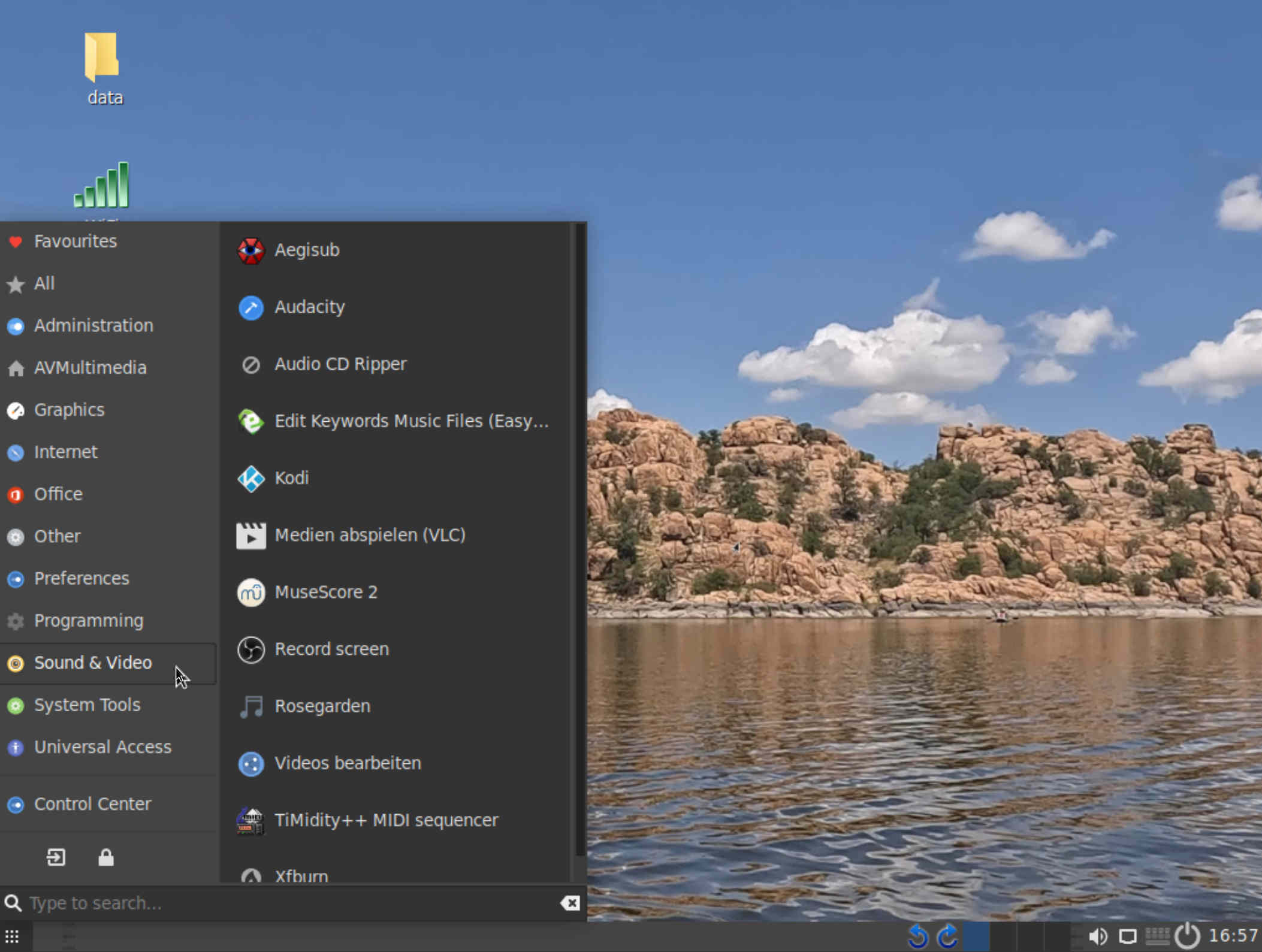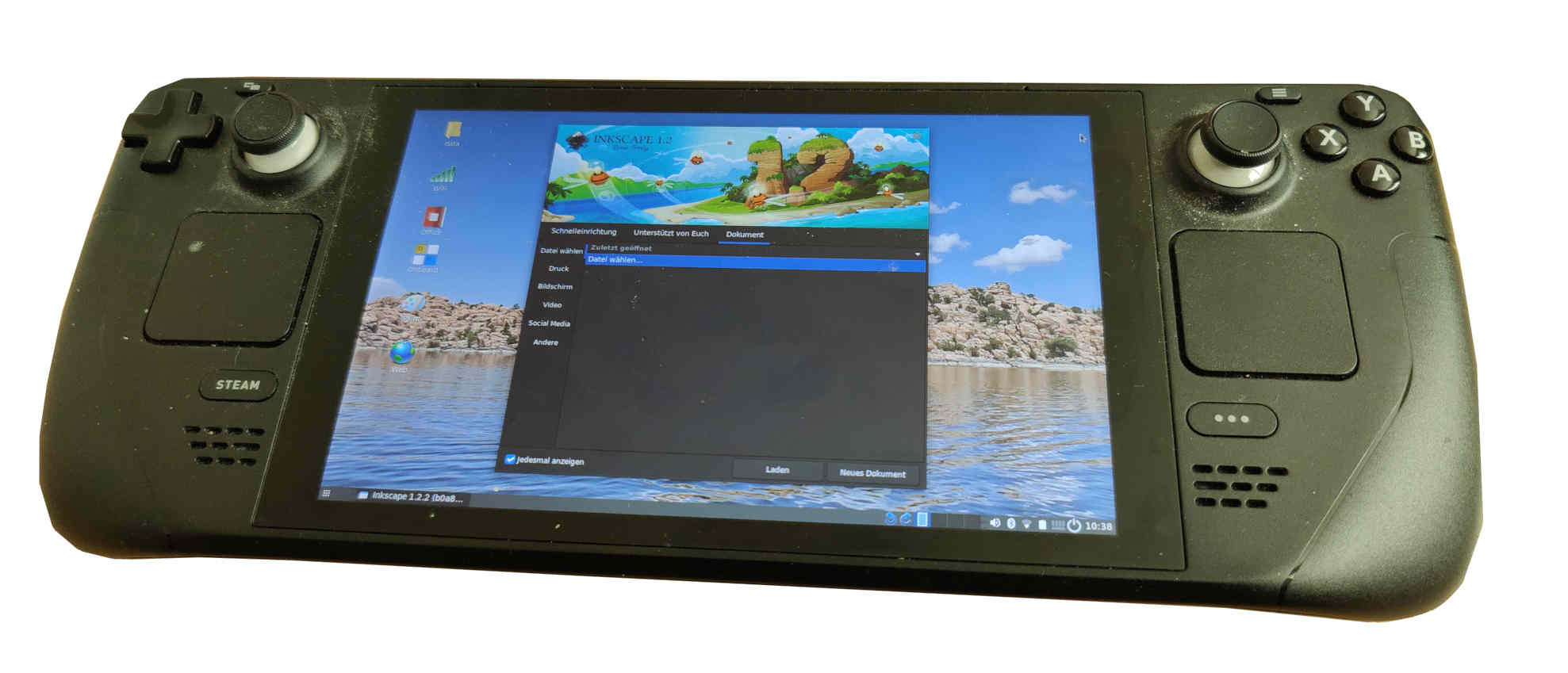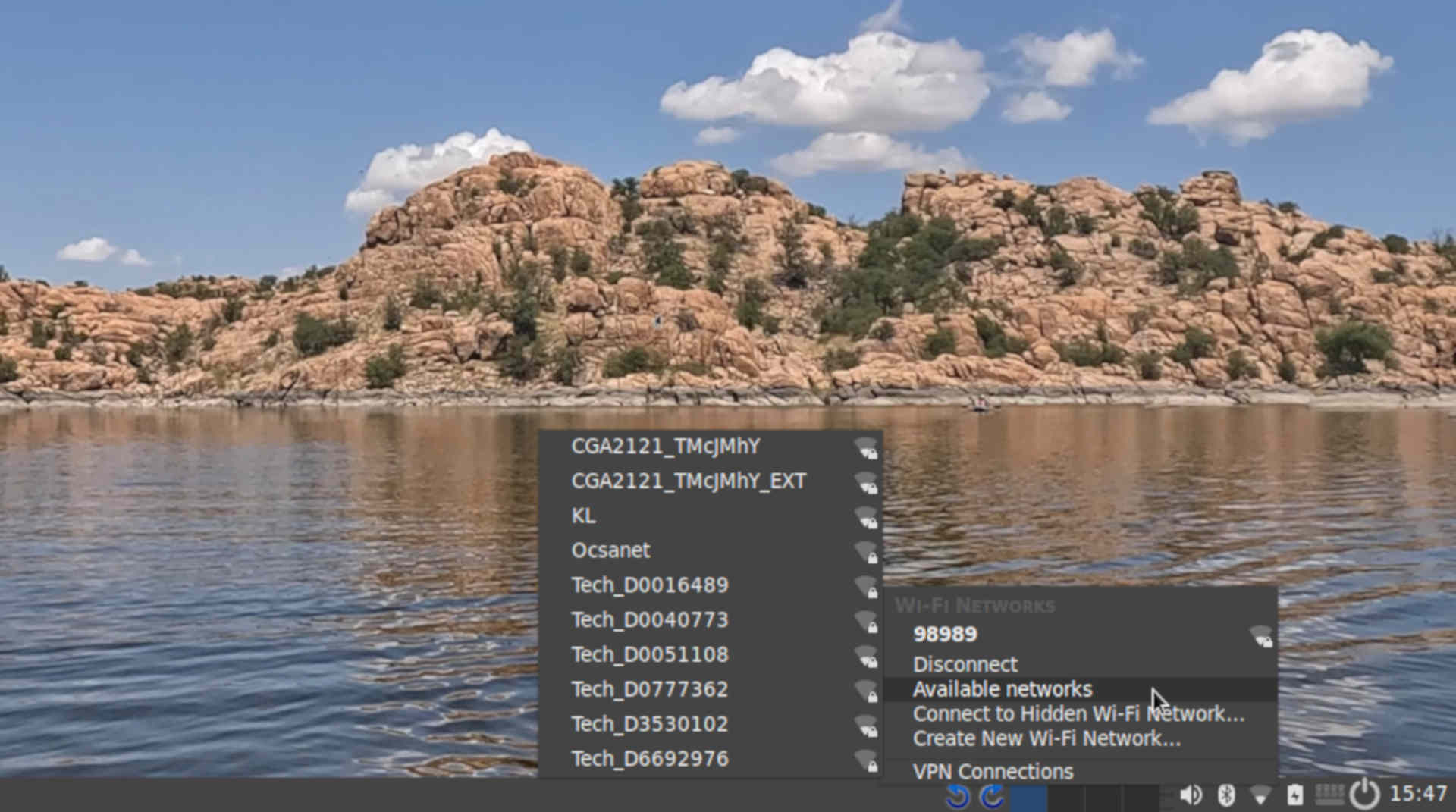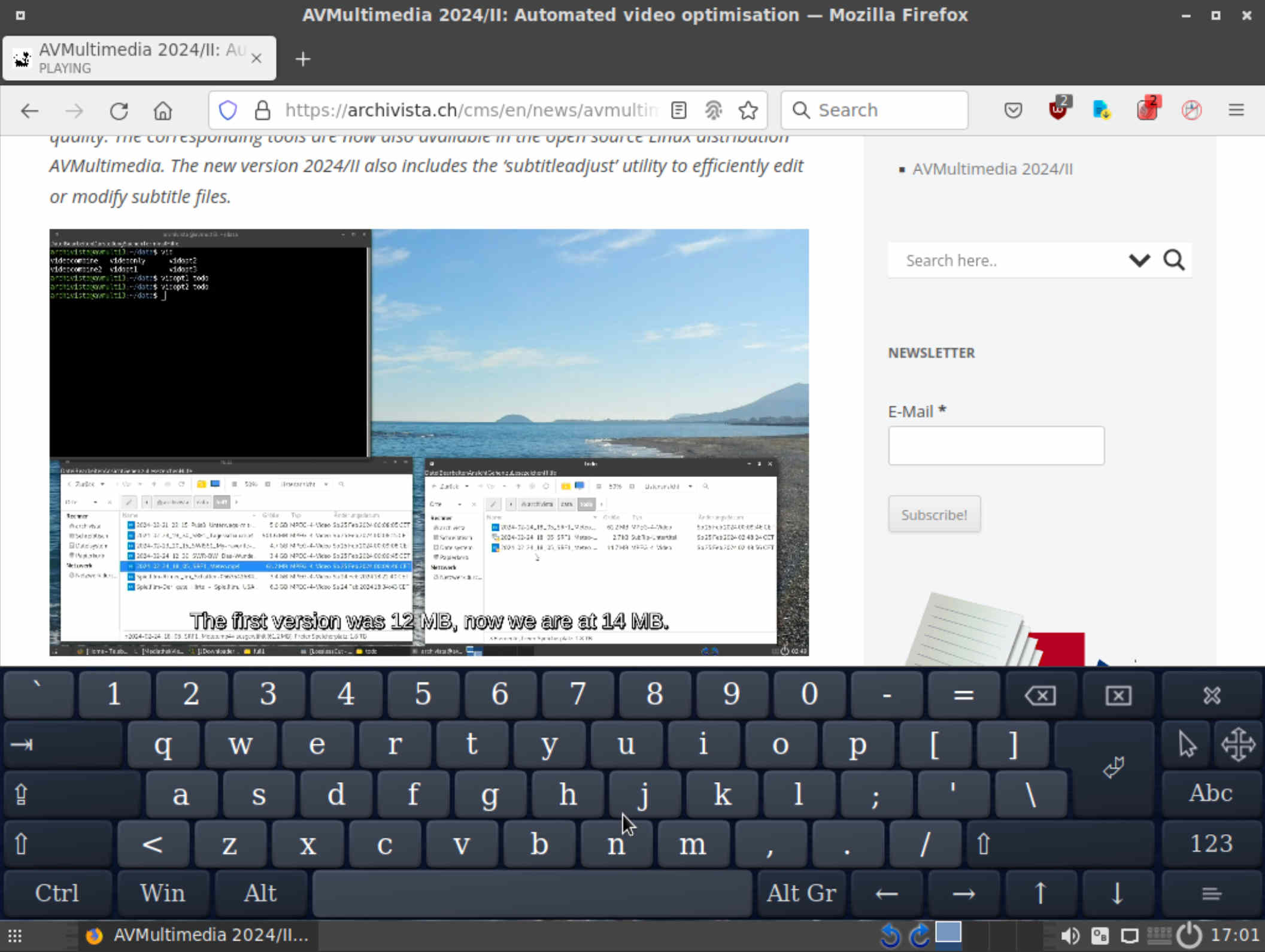Open source Linux desktop completely updated
Egg, March 19, 2024: After almost five years, the multimedia Linux desktop has been given a new look. Version 2024/III is based on Devuan Daedalus. This blog presents the most important new features and also reports on the challenges of upgrading software components of current Linux distributions. An outlook for ArchivistaBox customers is also included. First things first: The ISO files can be obtained directly from archivista.ch/cms/avmulti24.iso or archivista.ch/cms/avmini24.iso.
New features of AVMultimedia 2024/III
AVMultimedia 2024/III is based on Devuan Daedalus. This means that the standard applications such as LibreOffice and Inkscape have been significantly updated. Almost more important than the “new” versions of the previous programs, however, is that the standard libraries are up to date. In the meantime, some AppImage packages require the new libraries, with the old versions of AVMultimedia these cannot even be started.
The basis of every Linux distribution is the Linux kernel. This is the piece of software that forms the substructure. Both AVMultimedia and ArchivistaBox are supplied with Linux kernels created in-house. For AVMultimedia 2024/III, this is currently kernel version 6.1.82 (published on 15.3.2024).
This is accompanied by support for the SteamDeck devices. However, it should be noted here that the currently available Linux kernels contain a “nasty” bug. This causes booting to get stuck. The mishap occurred between kernel 6.1.61 and 6.1.62. All new kernels seem to be affected (at least tested with kernel 6.6.x). This could be corrected with two patches.
Wicd, the tool for administering WiFi networks, is no longer available. The Network Manager is now responsible for this. As the Network Manager does not work well with conventionally defined network connections, the Network Manager can now be activated via the familiar WiFi icon on the desktop. A small network icon appears in the panel (bottom right). The entry ‘Available networks’ can be found there. The desired WiFi connection must be selected with good precision on a touch screen (see SteamDeck).
The WLAN network settings made can be saved for the next start by entering the password when the ArchivistaBox is shut down. However, this comes at the “price” that the passwords entered are saved on the hard disk in plain text. If you do not want this, you can easily enter the WiFi network via the network tool (via the AVMultimedia menu). Passwords entered there are not stored in plain text on the hard disk.
Devuan Daedalus as the basis for AVMultimedia
Before a new master release, such as AVMultimedia 2024/III, is released, a review is carried out. What experiences have been made with the previously published versions, what can be expected for the coming years, etc.? About 5 years ago, when it was time to switch from Debian to Devuan, it was impossible to say how well Devuan would be able to establish itself alongside Debian.
It is now clear that the coexistence works well. In 2018, Debian was ranked 6th on distrowatch.com, while Devuan was ranked 42nd at the time. Debian is currently ranked 4th and Devuan 36th. For all those who are not familiar with Devuan or Debian in the narrower sense, it should be noted that Debian is the Linux distribution published by the community, which is delivered with the SystemD boot manager that is widely used in the Linux world. Devuan does without it, but is otherwise very close to Debian.
The fact that AVMultimedia uses Devuan and not Debian as a basis was already discussed years ago. The fact that this will continue to be the case in the future is due to the fact that the last few years have shown that Devuan works in a pleasantly stable manner both in the form of AVMultimedia and ArchivistaBox. Of course, this would also be possible with Debian, but the implementation effort would be far greater and ultimately AVMultimedia and ArchivistaBox are about using the available resources “sparingly”. And that is why Devuan remains on board.
Compatibility, progress and bugs
Despite all the joy about the release of AVMultimedia 2023/III, it should be noted here that the current trend in software development in the Linux environment is somewhat worrying. As much as the new functions of the programs and the support of the new hardware are exciting, it should unfortunately also be noted that compatibility often has to give way to progress. Here is an example.
Python is the most widely used programming language of all, with around 28 percent of all programs worldwide currently being implemented in Python. For a long time, the older version Python2 existed alongside Python3, but further development has been discontinued since 2020. Of course, it makes sense to devote all efforts to Python3. Nevertheless, the problem remains that billions of lines of code were probably realized with Python2. According to mayerdan.com, 15 to 50 bugs per 1000 lines are expected in the industry.
In order to migrate Python2 to Python3, approximately 1 to 2 percent of the code will probably have to be changed (own estimate). Assuming that 1 billion lines of code exist, this results in 1 million adaptations or over 30,000 new bugs. Python2 is missing in the current release 2024/III; it has now been removed from all common Linux distributions. Whether this will make the overall package more stable is doubtful.
Status of ArchivistaBox
The migration of ArchivistaBox to the status of AVMultimedia 2023/III has been completed to the extent that all required components of ArchivistaBox are already available on the basis of AVMultimedia 2023/III. Adaptations were necessary for ArchivistaVM (Python2), ArchivistaDMS (ExactImage library) and ArchivistaERP (porting the code from PHP7.4 to PHP8.2).
In principle, the ArchivistaBox 2023/III could also be released with the release of AVMultimedia 2023/III. However, this will not take place so that the ArchivistaBox can be extensively tested on the basis of AVMultimedia in the near future. However, it can already be stated that the updated ArchivistaBox is expected to be released in summer/autumn (and thus according to plan).
Our databases for development now contain over 20 TByte of data with many millions of data records. This allows us to put the new ArchivistaBox through its paces. This ensures that the ArchivistaBox can be delivered to our customers on a solid and stable basis for the next few years. For this reason, there will be fewer new functions in the ArchivistaBox over the next few months. This will result in an ArchivistaBox that we expect to be able to support until 2029.








